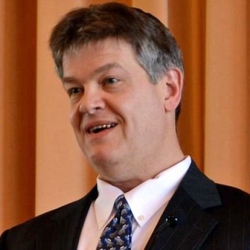On Tuesday, November 3, Americans in all 50 states will turn out for the 2014 mid-terms elections. At stake will be 38 governorships, 33 senatorial seats, all 435 seats in the U.S. House of Representatives, 46 state legislatures, four territorial legislatures, and countless state and local elections. The Keystone XL Pipeline, the effects of Obamacare, net neutrality, and the income gap are thought to be key national issues, but local issues sometimes dominate certain state and local elections.
A number of states will have referendums, initiatives, and repeals also on the ballets. In Massachusetts, several questions will be asked of the voters. Question 3 involves the question of casino repeal. In 2011, the Massachusetts electorate voted to approve a casino license. That led to last month’s announcement that Wynn Resorts would collect the casino license for Everett, thus becoming the only land-based casino in the Boston area. Question 3 could take that license away.
Proponents of Gambling – “I Back Casinos”
People inside and outside of the state have weighed-in on casino gambling. Op-ed writers like Jeff Jacoby of the Boston Globe called “I Back Casinos” also support land casinos in the state. Of course, organizations expected to support such an initiative, such as the American Gaming Association, also came out in support of the measure.
The forces pushing the “No” vote on Question 3 include the Coalition to Protect Mass Jobs, which has collected $1.7 million to promote casinos in the state. They have been running TV ads to the push their agenda, while their opposite number, Repeal the Casino Deal, has only raised $250,000. No doubt, gaming companies which had something to gain, like Wynn Resorts, Suffolk Downs, and Mohegan Sun, offered sizable donations to such causes. Lucky for the “Yes” folks, plenty of others have lined up to oppose casinos.
Casino Opponents: Why Casinos Matter
On the other side, a mass of opponents have emerged. Thirty-three scholars from a wide range of school, including the Brookings Institution, Cornell, Penn, Dartmouth, and Berkeley signed their name to a paper called “Why Casinos Matter“, which put forth statistical evidence for why casino gambling helps a community. Local scholars like Alan Wolfe of Boston College and Richard Daynard of Northeastern University were a part of that effort.
Carlo Rotella
These include Carlo Rotella of the Boston Globe, who recently penned “Why I’m Voting for Casino Repeal“. Cardinal O’Malley joined a collection of religious leaders who voiced moral objections to the casino initiative, and called for repeal. As one might expect, the Center for Problem Gambling also voiced opposition to soon-to-come Wynn Casino.
Rotella pointed out in his column that Moody’s has downgraded its outlook for the casino industry in America from “stable” to “negative”. The reason for Moody’s concern is the oversaturation of the market, especially in the northeast.
No Net Gain from Casinos
As more states approve casinos, they no longer become regional destination spots. Instead, they attract nearby gamblers from the state itself. In such circumstances, the casino is not a net gain for the state. It simply takes money from one group of people and gives it to another, with no new money rolling into the state. Gambling revenues are down 35% in Connecticut and nearly 50% in New Jersey over the past 7 to 8 years.
Wynn Resorts Crossing Its Fingers
If the “Yes” votes win the Question 3 proposition, then Wynn Resorts will have spent three years seeking a license, only to have it snatched away at the last moment. The election determines the future of a $1.6 billion investment, which itself offers the hope of billions of dollars in eventual profits for Wynn Resorts, hundreds of millions in tax revenues for Massachusetts, and thousands of jobs for area workers. Wynn and his allies in the AGA are likely to spend millions to push the pro-casino agenda prior to the election.
Steve Wynn has built casinos in Las Vegas and Macau, China, so he has learned how to deal with a wide range of officials and personalities, but Massachusetts might be a special case. He and the mayor are not that cordial.

